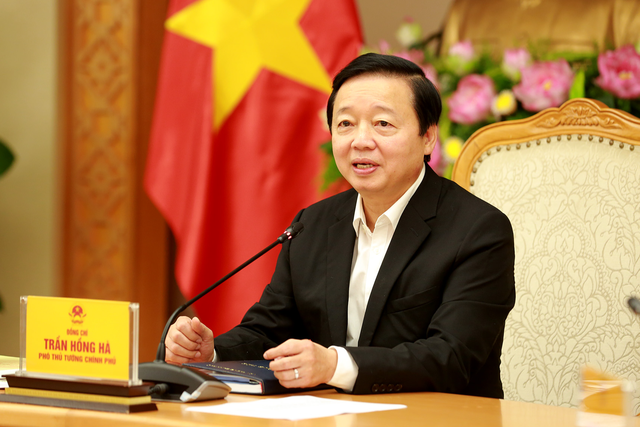Deputy Prime Minister Tran Hong Ha leads National Committee for the Elderly
VGP - Deputy Prime Minister Tran Hong Ha has recently been appointed as Chairman of the National Committee for the Elderly.

Deputy Prime Minister Tran Hong Ha
Prime Minister Pham Minh Chinh has recently signed Decision 707/QD-TTg to approve a list of members of the National Committee.
The Committee shall be led by Deputy Prime Minister Tran Hong Ha who will be assisted by two Deputy Chairmennamely Minister of Labor, Invalids and Social Affairs (MOLISA) Dao Ngoc Dung and Chairman of the Vietnam Association of the Elderly Nguyen Thanh Binh.
The National Committee has 19 members: MOLISA Deputy Minister of Nguyen Van Hoi, Deputy Minister of Home Affairs Vu Chien Thang, Deputy Minister of Planning and Investment Nguyen Thi Ngoc Bich, Deputy Minister of Finance Vo Thanh Hung, Deputy Minister of Health Nguyen ThiLien Huong, Deputy Minister of Education and Training Nguyen Van Phuc, Deputy Minister of Culture, Sports and Tourism Trinh Thi Thuy, Deputy Minister of Information and Communications Phan Tam, Deputy Minister of Justice Dang Hoang Oanh, Deputy Minister of Agriculture and Rural Development Tran Thanh Nam, Deputy Minister of Construction Nguyen Van Sinh, Deputy Minister of Transport Le Dinh Nho, and others.
The interdisciplinary organization is in charge of assiting the Prime Minister in taking care of and upholding the roles of the elderly.
Although Viet Nam is experiencing a period of “golden population structure,” the country is one of the most rapidly ageing countries in the world.
People aged 60 and older make up 11.9 per cent of the total population in 2019, and by 2050, it will rise to more than 25 per cent.
By the year 2036, Viet Nam will go into the aged population, transitioning from an “ageing” to an “aged” society.
With the average number of healthy years for Vietnamese citizens hovering at just 64, health concerns loom large for this ageing population.
Under a study by the hospital, the hospital’s patients over 80 years old suffer from up to six diseases simultaneously, such as diabetes, hypertension, osteoarthritis, parkinsonism, dementia and stroke.
It is forecasted that in 2049 the number of elderly people needing medical support will increase by 2.5 times compared to the current level of 4 million people.
Most of Vietnamese people do not have financial planning since middle age to prepare for their old age. When old age comes, they have to suffer from many diseases with expensive medical costs, thereby creating burdens on their family and the social security system. Hence, health care for the elderly is an urgent need while medical services for the elderly in Viet Nam are still limited. The system of nursing homes and social protection centers is still limited in quantity and quality.
Health insurance fund only covers costs of examination and medicine for dementia patients treated at central-level hospitals. the fund does not cover the costs at lower-level hospitals nor the costs of rehabilitation techniques, palliative care and interventional techniques. It thus also creates economic pressure on the elderly.
It is also imperative to disseminate knowledge to both the elderly people and their relatives to help the elderly to prepare for their old age.
The health sector has to strengthen the training of doctors and nurses soon to serve the need for medical support of the elderly people./.

